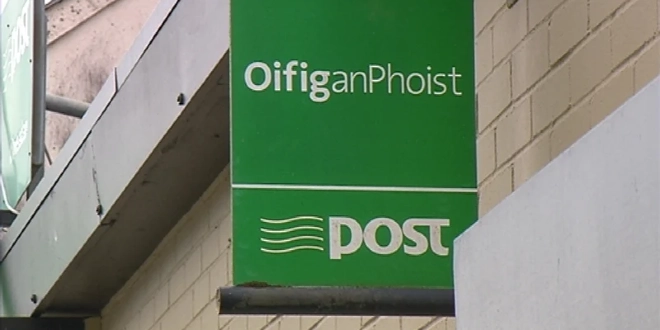Over the past decade, 257 post offices have shut down across Ireland, reflecting growing strain on the country’s postal network. This figure, disclosed through a parliamentary response to Sinn Féin TD David Cullinane, underscores widespread concern over the viability of the national service — especially in rural communities where the post office remains a cornerstone of local life.
Closures Impact Rural Counties Most
The county with the highest number of closures was Cork, which lost 34 post offices — 22 in rural areas and 12 in urban settings. Dublin followed closely, with 21 closures, while Galway saw the same number shuttered in its rural districts. Other counties deeply affected include Donegal (19), Mayo (18), Kerry (15), Wexford (15), Limerick (12), and Tipperary (11).
Mr. Cullinane described the closures as “shocking,” emphasizing the essential functions post offices provide. Beyond delivering mail, they serve as hubs for financial services, social welfare payments, public communications, and often act as the only visible presence of the state in more remote areas.
He warned that unless the current contract framework for postmasters is reformed, more closures are inevitable. “The terms are no longer viable for those entering the role,” he explained, noting that long-serving postmasters often retire without successors willing to take on the job. Without urgent changes, he said, “more communities will lose their post office, which would be a serious setback for rural cohesion and access to services.”
Calls for Increased State Support
The crisis has triggered growing calls for government intervention. Just last month, the Irish Postmasters Union (IPU) warned that nearly 40% of the country’s post offices could close unless state funding is significantly increased. The union is seeking a boost in annual funding from €10 million to €15 million over the next five years.
General Secretary Sandra Tormey outlined the challenges postmasters face, telling the Oireachtas Committee on Transport and Communications that 108 postmasters are earning less than minimum wage once business costs are deducted. She explained, “If government support remains at €10 million, we estimate 40% of the network will collapse. Inflation and wage increases have hit hard, and we are unable to adjust prices or access business support schemes since we’re considered service providers, not retailers.”
However, she said that if funding were raised to €15 million annually, around 70% of postmasters could realistically envision a sustainable future in the role. This investment, the union argues, would also allow post offices to expand in-person government services, improve identity verification infrastructure, and assist with fraud prevention — all vital needs in an increasingly digital society.
Local Voices and An Post Join the Appeal
Highlighting the personal impact of the funding shortfall, Fine Gael TD Micheál Carrigy cited his own family’s post office in Ballinalee, Co Longford, as an example. “Without increased funding, we’ll be among the 40% forced to close. The €10 million helped us survive, but going forward, we need €15 million for the network to thrive.”
David McRedmond, CEO of An Post, acknowledged the urgency of the situation and affirmed the organization’s support for increased funding. Acting as a liaison between the government and the IPU, McRedmond pointed to a broader trend: post office transactions have dropped by 32% since 2019. While digital transformation plays a role in this decline, McRedmond emphasized that face-to-face services remain essential for many citizens — particularly in older and rural demographics.
A Crossroads for the Post Office Network
The current situation marks a critical juncture for the Irish post office network. With widespread closures already taking a toll on rural life and many more at risk, stakeholders from across the political and civic spectrum are pushing for a renewed government strategy that prioritizes sustainability, community access, and the enduring public value of these vital local institutions.
As Cullinane concluded, “What’s needed now is not just funding, but vision — one that puts communities and public service first.”
 The Daily Star Ireland
The Daily Star Ireland

